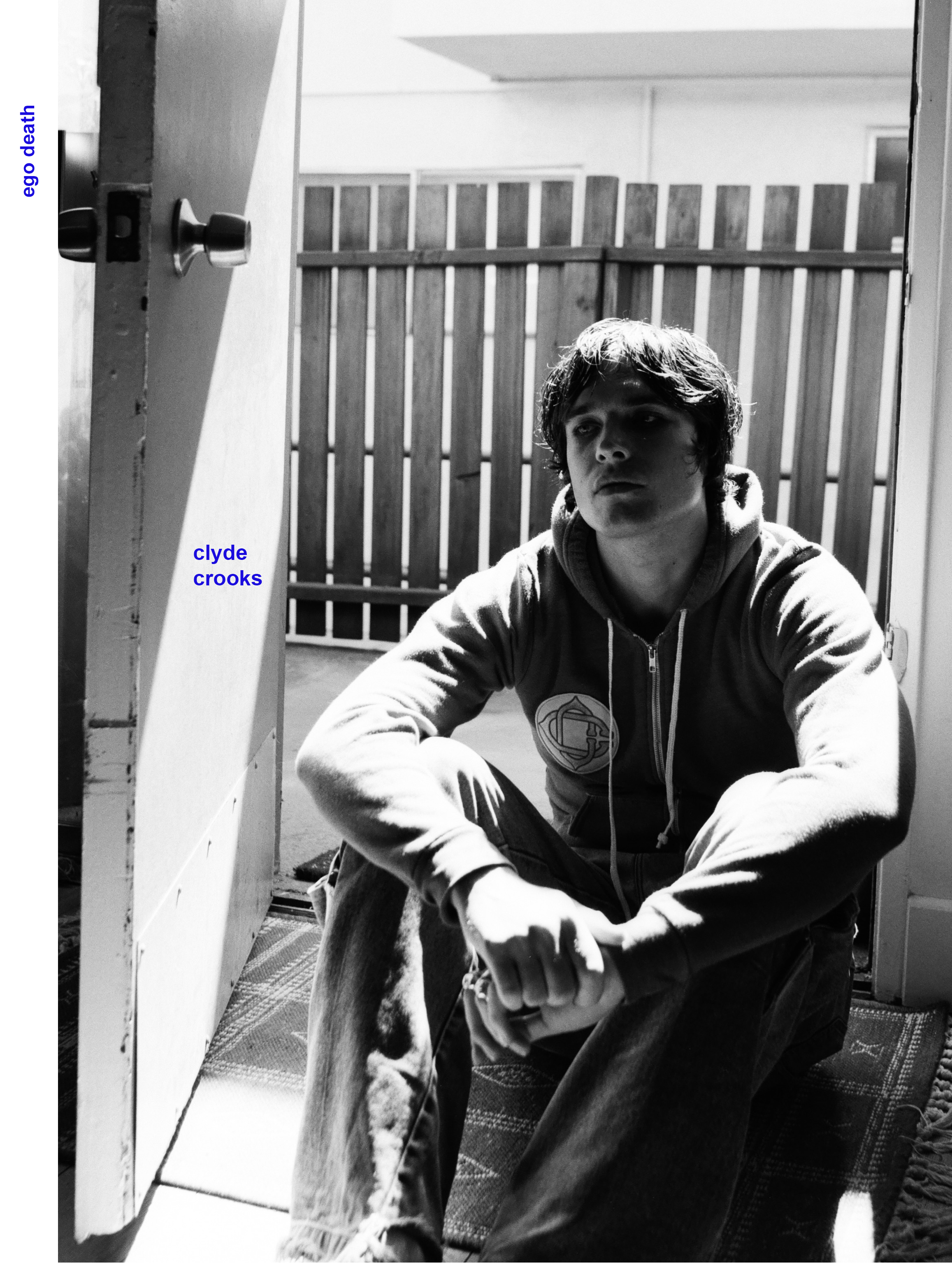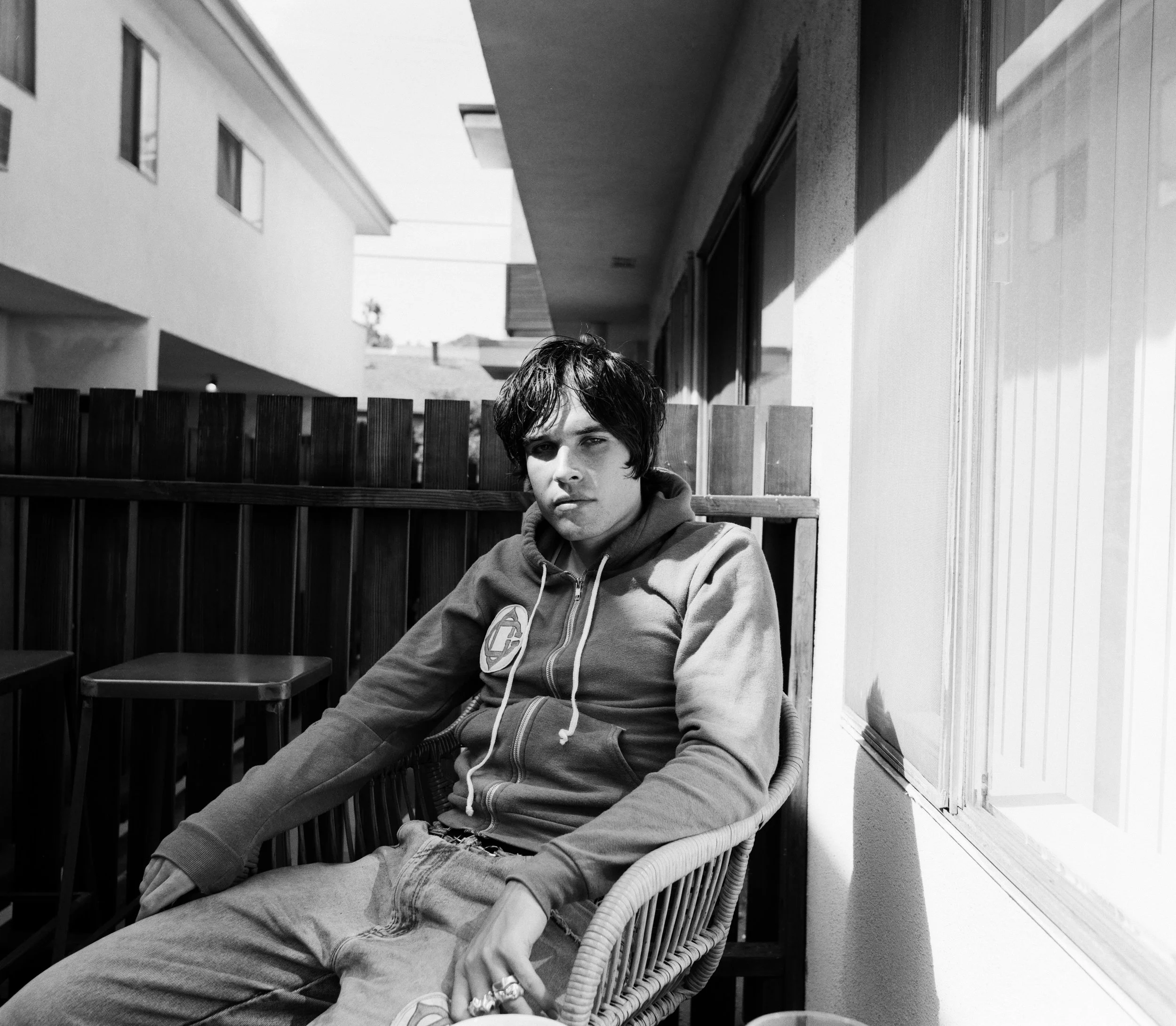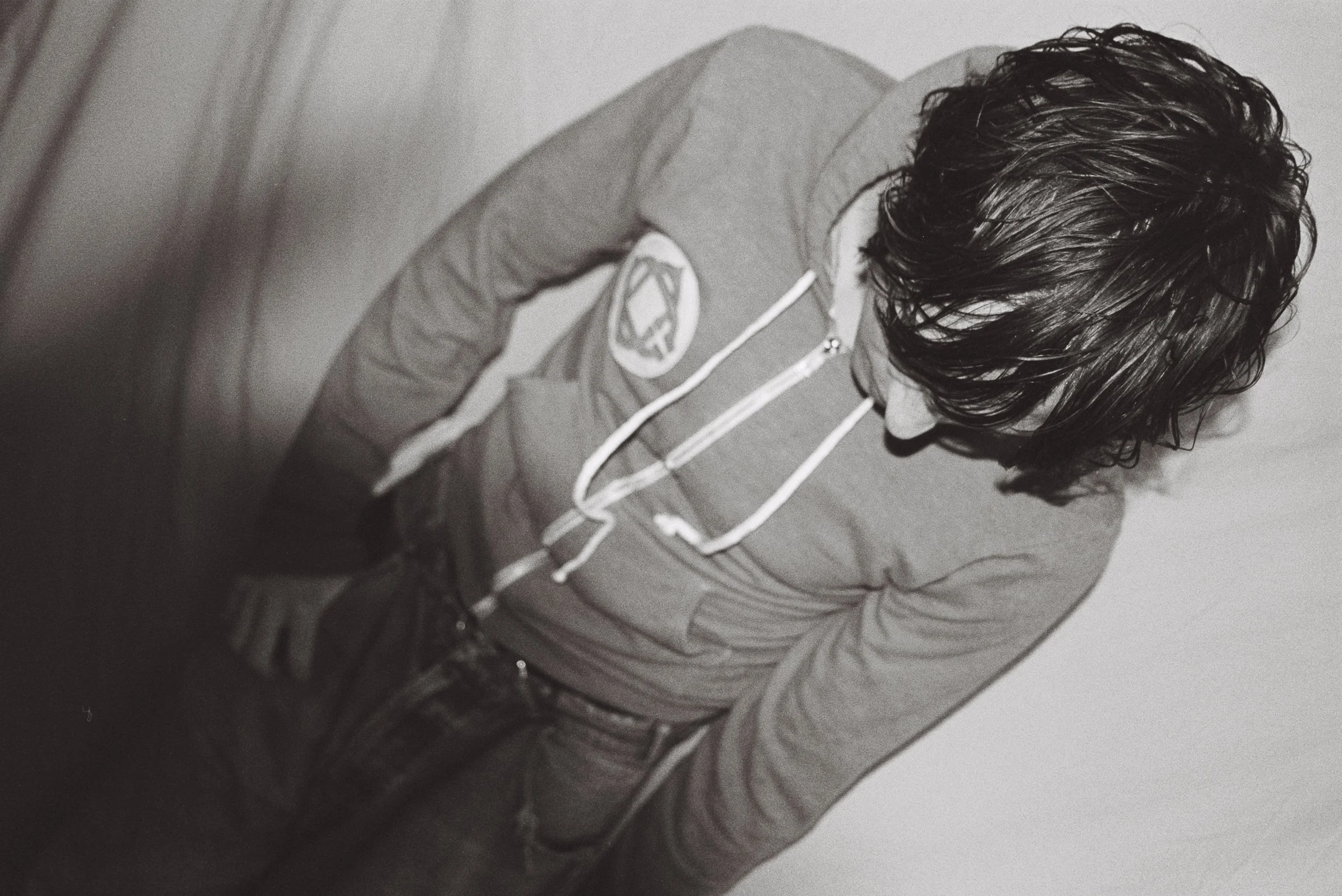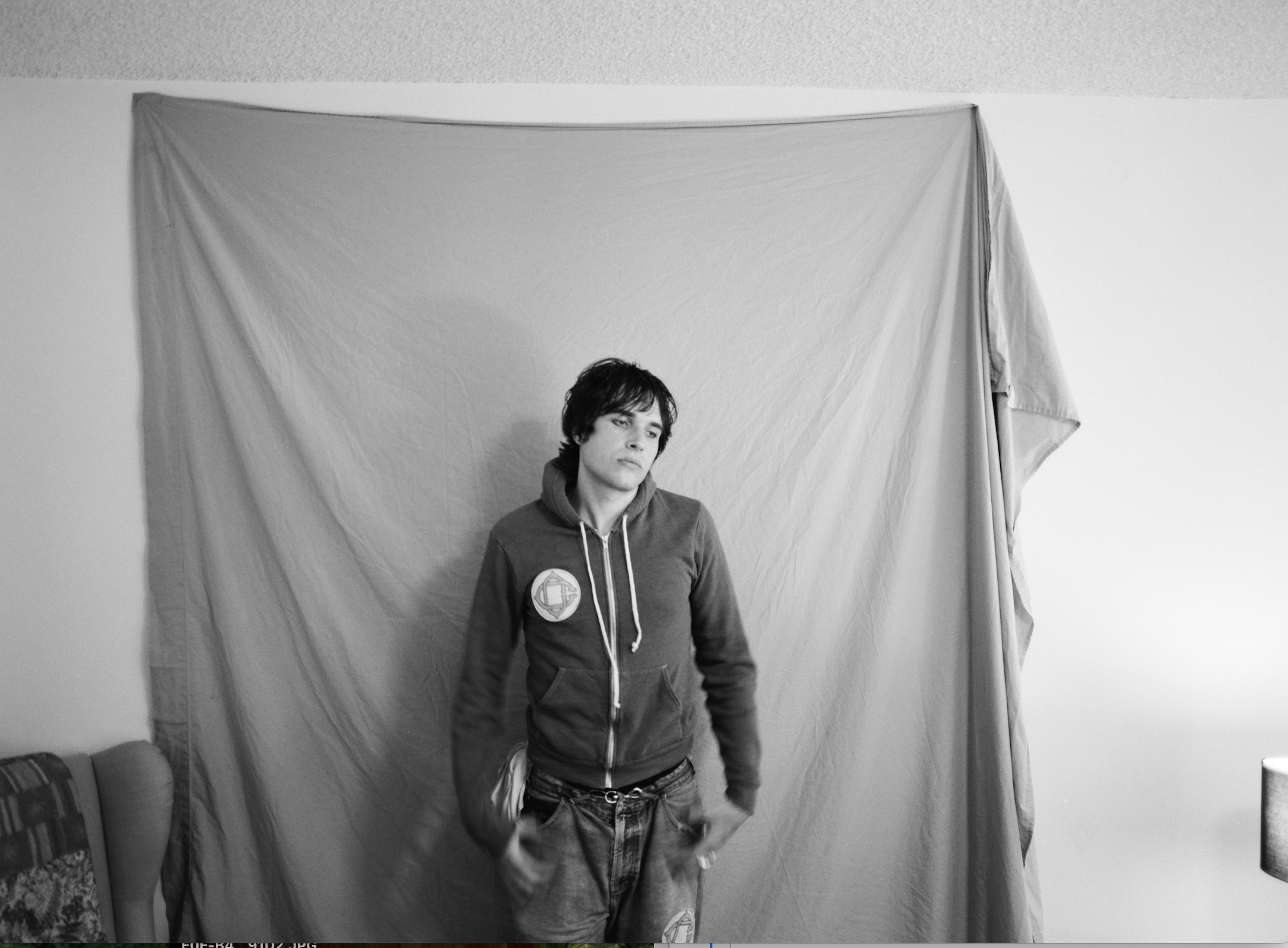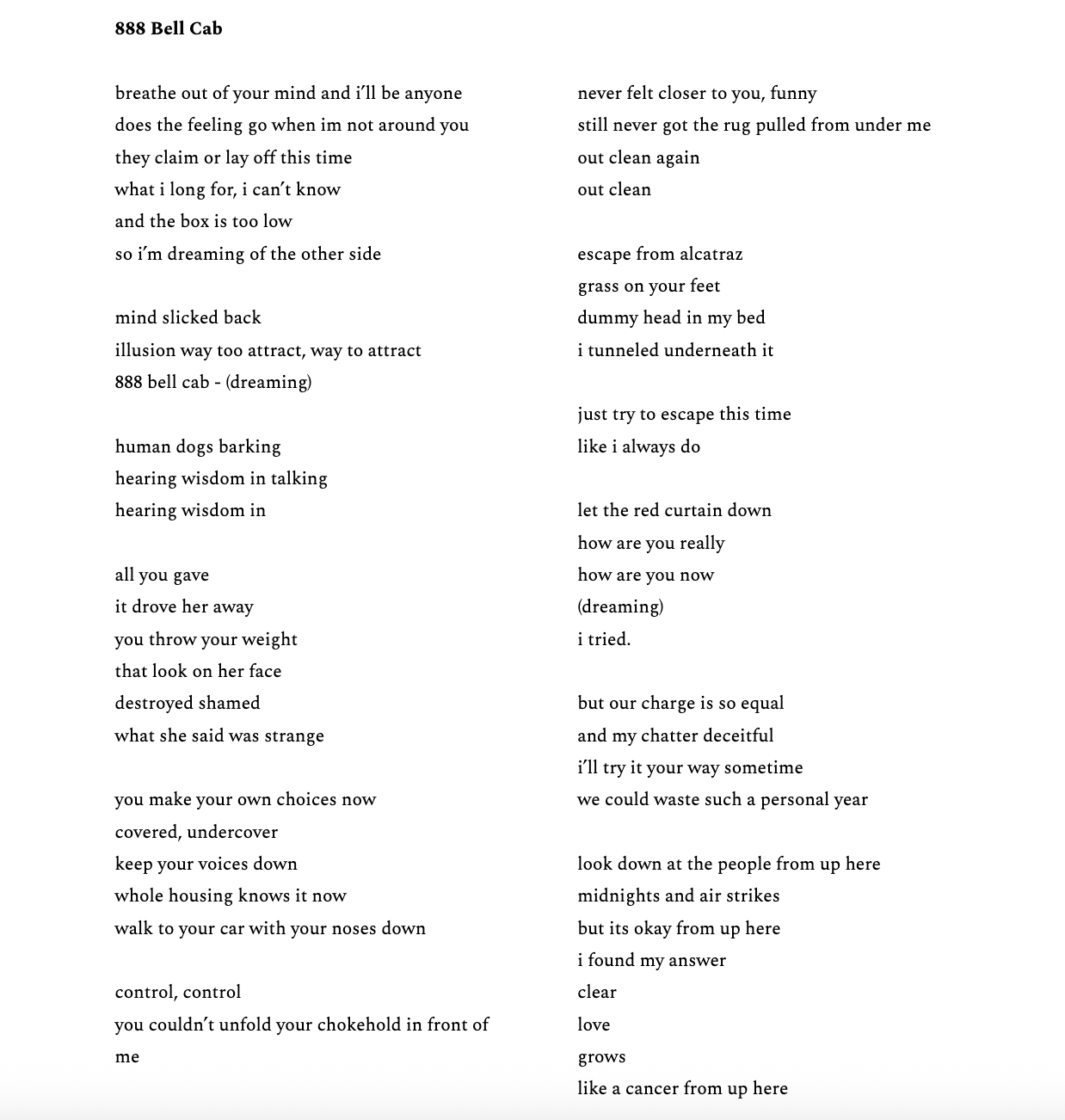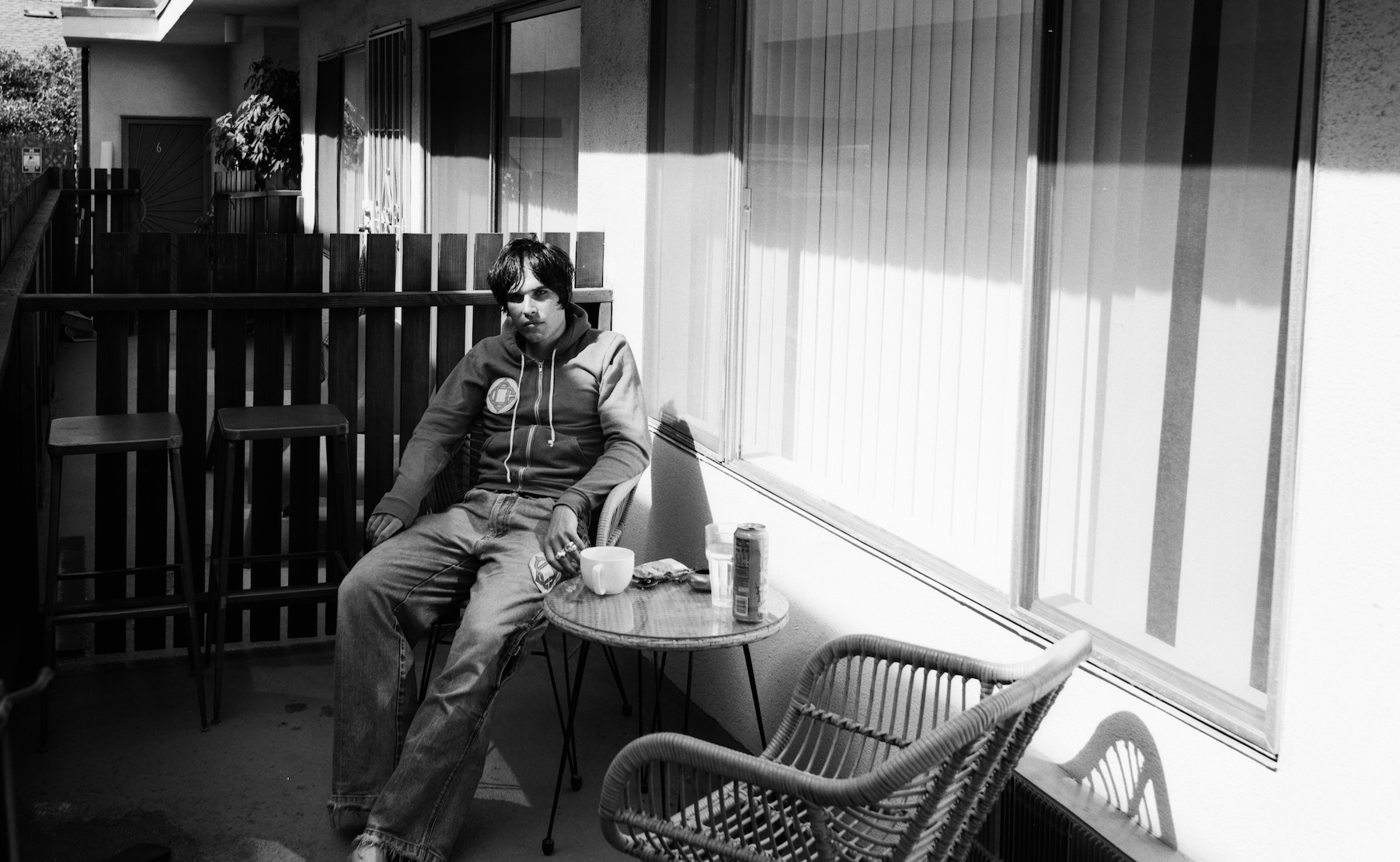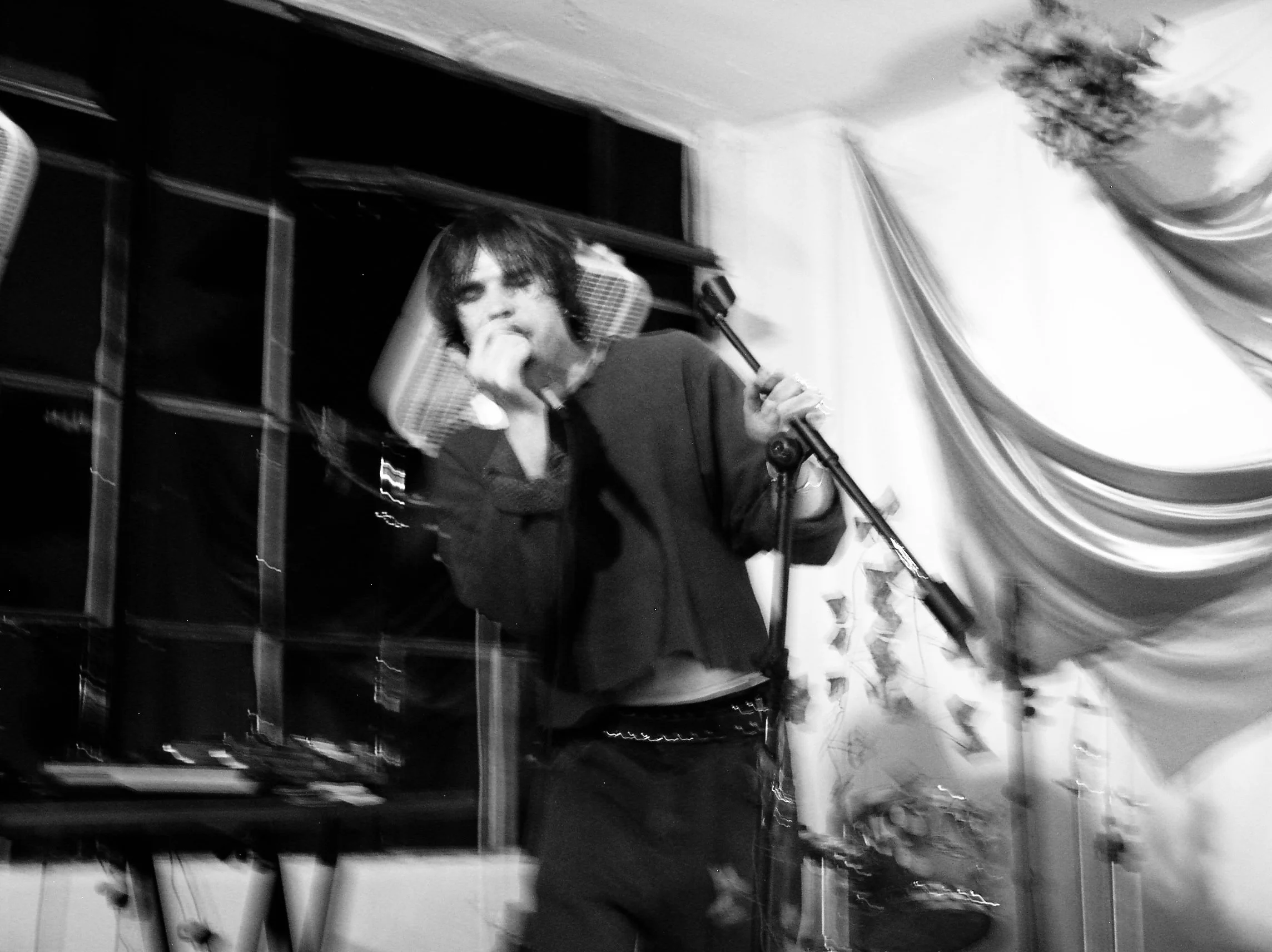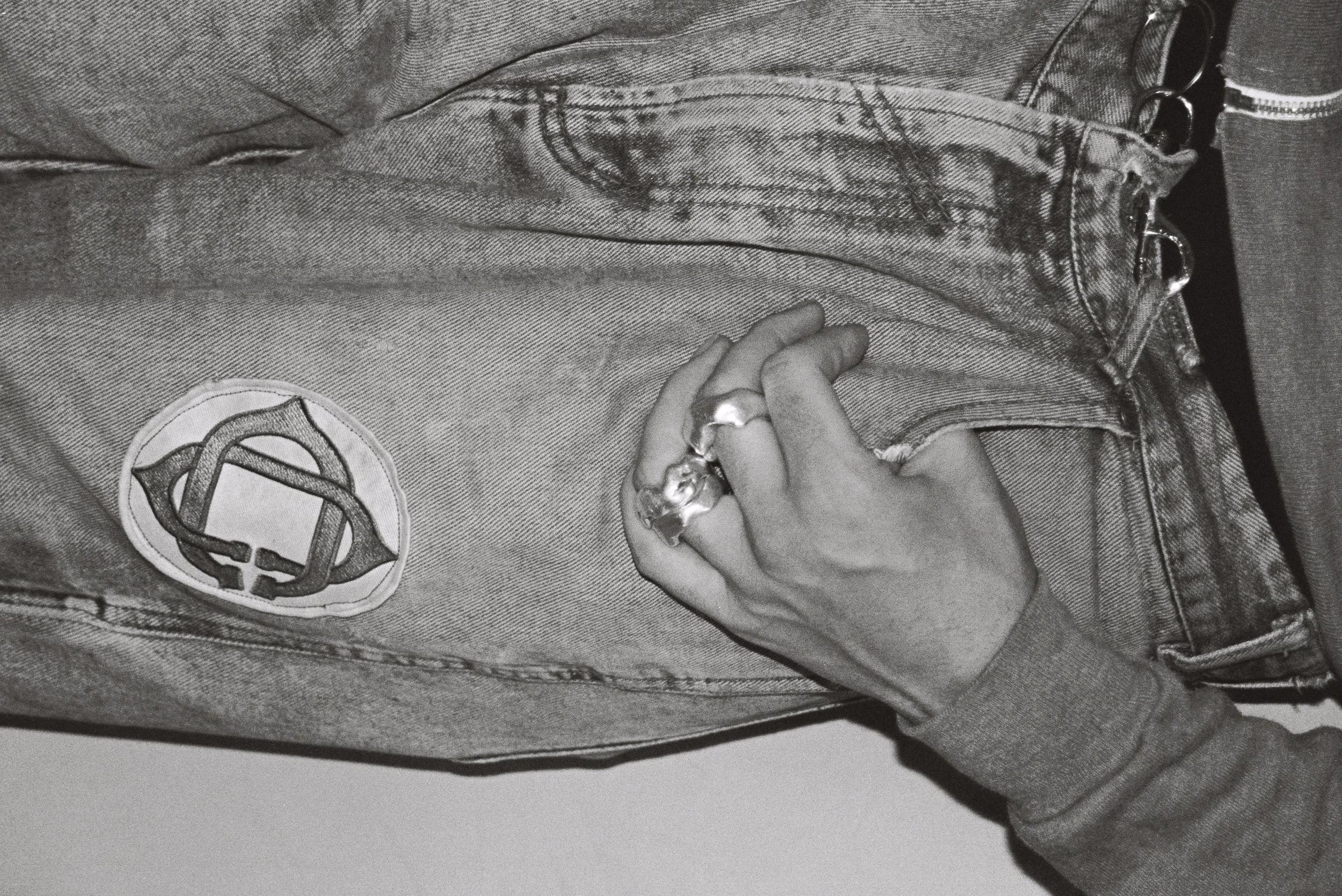CLYDE CROOKS
It has taken me so long to write this fucking article.
Because, in all honesty, this was one of the most impactful and honest conversations I’ve ever had.
I’ve so badly wanted to do it justice.
When I first listened to Clyde Crooks, I knew that I had struck gold. There was a specific feeling, metaphysical and empirical, that seeped from his music.
Inexplicably honest.
Confessional.
Yet full of secrets.
When you hear his sound: grungy, alternative, hyper-pop; when you watch his videos: esoteric, agitated, kinetic; you aren’t seeing into his life, you aren’t welcomed into his reality.
You are existing within the confines of his journal, his memory, his psyche.
Some of it you can comprehend, some of it you can merely feel.
Some songs are billboards, some are braille.
I was praying that he would be open to discussing these intricacies with me. I had no clue how much of his humanity he was willing to share.
When I first spoke to him on the phone, I asked him - if he would.
If he was willing to discuss his mental health, and how it played into his process, and the confessions, secrets, and truth of his music.
With great confidence, respect, and altruism, he asserted, “It’s in everything I do.”
“I’ve had the answer for a long time, but I’ve never been asked the question.”
WELCOME TO EGO DEATH.
The Los Feliz sun blazed ruthlessly that afternoon, but neither of us minded. Lounging on his outside patio, he spoke of home.
“I'm really proud to be from Los Angeles. I grew up with the sense that you could make the city what you want it to be. I think that it's a place that doesn't offer itself up.”
Yet a place that has everything to offer. Especially for Clyde, who, from a young age, felt drawn to the artistry of the city.
While this curiosity and inquisitiveness have always existed, discipline might not have come as easily. In a swell of laughter, he admitted, “It was really my dad who held my feet to the fire.”
Just like a lot of kids, he started piano lessons when he was four. And just like a lot of kids, he wasn’t ecstatic to sit still, even if that meant only practicing for fifteen minutes a day.
“Five minutes in, I would start crying. Can I just please use the bathroom? Stopping the timer, my Dad said, Totally. Take as long as you want. I’d come back, he’d restart the timer and I'd ask, Can I please just have a snack (or whatever the fuck I need)? I hated it.”
But eventually, once he overcame the growing pains, his parents couldn’t get him to stop.
He would often imagine himself conducting classical compositions.
“I would listen to Stravinsky and think, man, I wish I fucking made this track.”
Clyde paused for a millisecond.
“I think it's taken me a second to own that again. I've always loved performing. Since I was a kid. Now, I actually see that the most practical thing for me to do counterintuitively is to be a rockstar, which is funny. I genuinely love it a lot. I feel the most like myself. Performing is a major outlet for me, major, major outlet.”
From that sentiment, I sought to understand that space in between.
“I was a bit of a loner growing up, but I think that that was largely self imposed. I was just kind of a weirdo…and generally focused on other things. I think that maybe I made it harder for myself to fit in and find community than I needed to.”
He only listened, really, to classical music and classic rock. He often felt embarrassed in social settings. He was in his own world.
Once he began writing his own music, which started around middle school, community began to naturally form around him. He started scoring his friends’ theater school auditions. He became a bit more open minded to the music and the noise around him. Specifically, “Birds in the Trap Sing McKnight” and “To Pimp A Butterfly.”
“Listening to those albums, that took the genre of hip hop and scaled it all the way up to the most theatrical orchestral high art possibilities - spoke to me so much, and I realized, oh shit, I like this is, I want this. This is it for me.”
With his classical piano background, Clyde began teaching himself drums, guitar, and bass. He had always been writing, but by high school, he started finishing his songs.
“That’s a pretty big transition for someone. No matter where they are in life, to finish anything is big…especially recording something I would then sing on.”
He’s always loved the freedom that other instruments, besides the piano, brought him. He believes strongly that not having mastery allows for immense creativity. “I kind of want to keep it that way.”
What once was scoring his friends’ auditions became producing for the music community he found himself in, specifically after high school. He also amassed the confidence to begin posting on SoundCloud and exploring visuals for his work (which, if you look hard enough, all still live in the depths of the internet).
However, purpose wasn’t ever a stranger to Clyde.
“I was doing a lot of producing…but I had this realization, after a while, that I don't want to be in a windowless room for all of my life in my twenties. I want to be performing. I have some fucking shit to say, and I want to get it off of my chest.
I've always known that this is what I'm doing. What that's meant has changed and will continue to, but I've always known that I'm taking this shit all the way.”
T: So why release your first cohesive project now?
C: The interesting thing about this project for me is - I've always been working on my own stuff.
I went through a pretty rough time where one of my best friends, who was a huge, huge, supporter of me, passed away. He committed suicide, two years ago. That was a major blow to my self esteem and my belief in myself and my ability to have my own voice.
I retreated to focusing solely on production after that, solely on other people's work, which I still love to do, and I'm still involved in, but the project that's coming out now is a lot of stuff that's very old, actually.
This project is an act of self-love. I'm taking this stuff that I have had for a while, and giving it justice.
T: Is ‘let the red curtain down’ an act of revealing how you feel? Or asking someone else to?
C: Both.
He chuckles.
C: It’s a little hypocritical, because why would I ask someone else to do that when I, myself, struggle to be open in that way?
…also a red curtain would normally come up, not down, but anyways.
T: My favorite has to be 888 Bell Cab.
T: Dude. Everything about that song. But also the “escape from alcatraz” stanza. Holy shit. Genius.
C: Escape from Alcatraz is actually in reference to the movie by Clint Eastwood.
T: There’s such a line of confinement and conformity in this song, and in that stanza specifically.
C: For me, I mean, it’s really about going back and forth between wanting to keep a relationship, but being afraid of the intimacy, and having such a strong desire to push that person away.
T: Mmm. “Love grows like a cancer from up here.”
C: I think it's cool that you are bringing up specific lyrics and wanting to get into that. I think it's funny to see artists that don't talk about the meaning behind their lyrics. Or subscribes to the narrative of it being completely up to the listener. Sure, it is up to the listener, but I am talking about something. And it’s cool that information can be available, if you are interested.
T: Well, is that ever difficult, though? Do you ever feel a, you know… vulnerability hangover? Once you release music? Or when you do share what your art means?
C: Vulnerability hangover. That's really interesting. I think it comes and goes.
I really care about authentic expression and pushing myself to be vulnerable. If I feel a vulnerability hangover, that to me is just a sign that that’s work that should exist in the world.
I want to be in the service industry. And if I feel exposed, that’s the point. So that people can ideally find solace in it or see themselves in those stories.
I think so much about the utility of music. Something I always ask myself when I'm working is, what is this for?...Something as simple as when I'm working on drums - what do I want people to do with their hands when they're listening to this? It’s not superficial. Can someone use this for something? Music is so important.
Mental health is just healthcare, you know? Music that is vulnerable and music that touches on very private things is of immense use to people.
…I don't think there is such a thing as going too far. Live, live in that fear, you know, live in that fear of feeling exposed, because that's the service of it, that's the utility of it.
T: Is it cathartic? The act of creating?
C: Sometimes writing makes me really fucking sad. Because I'm delving into difficult things and it's a mean process.
I think there is catharsis in expression, of course, but I think it's not necessarily like a euphoric thing all the time. Usually, I’m a little all over the place. If I'm in a state of things plugging in, subject-wise, emotionally, I'm not really part of that. Like, me as a person, I'm not really involved in that. That's just God, you know? It's an active prayer.
~~
You don’t believe in the utility of music or art unless it’s been of immense use to you.
Loss, grief, and suicidality aren’t unknown territories to Clyde.
In fact, they are a huge part of his life, his story, and his artistry.
C: I have a lot of experiences with death, nobody over the age of 20. I lost my childhood best friends in a car accident when I was 17, a cousin of mine OD'd recently, and my best friend committed suicide two years ago.
I think that dealing with profound loss is something that is incredibly tricky and.. I think that whether you want to believe it or not, I really think that you actually want to be told what to do in moments when the rug is pulled out from under you.
T: Does anything help?
C: Grief helps.
Grief is a fucking verb. It's an active, daily process that is something best engaged with hands-on rituals.
There's also something that happens when tragedy strikes, just a really strange thing that I felt. There's a huge relief when these things happen for me and for the people that I've gone through these things with - the fucking insanity and darkness that I feel on the inside now exists in the real world outside of me.
The music that means the most to me is music that is incredibly explicit and wrenching and talking about these things. I'm not saying that my music will have that. Grief is incredibly lonely and incredibly isolating.
If you want to talk about catharsis for me, that's catharsis - thinking, holy shit, I'm not the only person in this world that is in the darkness right now.
~~
Being comfortable to express and expose this darkness, for the sake of others, for the sake of keeping music as this source of utility, for the sake of himself, is an act of courage.
Now, with ‘let the red curtain down,’ and various other works he intends to release, he’s continuing to explore what this expression means for him, specifically in regards to suicidality.
C: That's a major admission in my work for me. On this project, I touch on it, but with other material I have, I get really explicit with things - lyrically speaking. I think that the mind and the spirit can be an incredibly treacherous, fucked up, violent place, and I want to make work that reflects that.
This is something I'm constantly coming back to - what another path could be for someone to contemplating suicide. And it's not answers. That's such a lonely thing, especially when you are actively, deep in suicidal ideation, you don't want to talk about it because it's your silver bullet, you know?
It's been a hard one, but I think that permission - with the utility of music and artwork - it’s the number one most important thing that art can do or an artist can do is give permission to people to be themselves.
I grew grateful for the sun that day. How exposing it felt.
Even as we discussed our trials with darkness.
An interesting challenge, I learned, for Clyde, now, is to express the subtleties of a positive outlook on life – something present for him currently.
It might be more complicated to be sad than happy, but Clyde is in the process of exploring this, as happiness still serves immense use.
The utility is from honest expression, which can entail both pain and beauty.
A few weeks after our interview, I had the chance to see Clyde perform live.
After learning of his psyche in his music,
coming to know his heart and mind in our conversation,
this is where I saw his spirit soar.
It wasn’t hard to imagine him conducting Stravinsky.
And it wasn’t hard to see and feel the utility of his music. The people around me saw themselves in it.
As did I.
I will forever cherish the truths excavated from this interview.
And forever grateful that someone asked him the question.
EGO DEATH
Story // Taylor Thompson
Photos // Taylor Thompson
CONNECT WITH CLYDE
